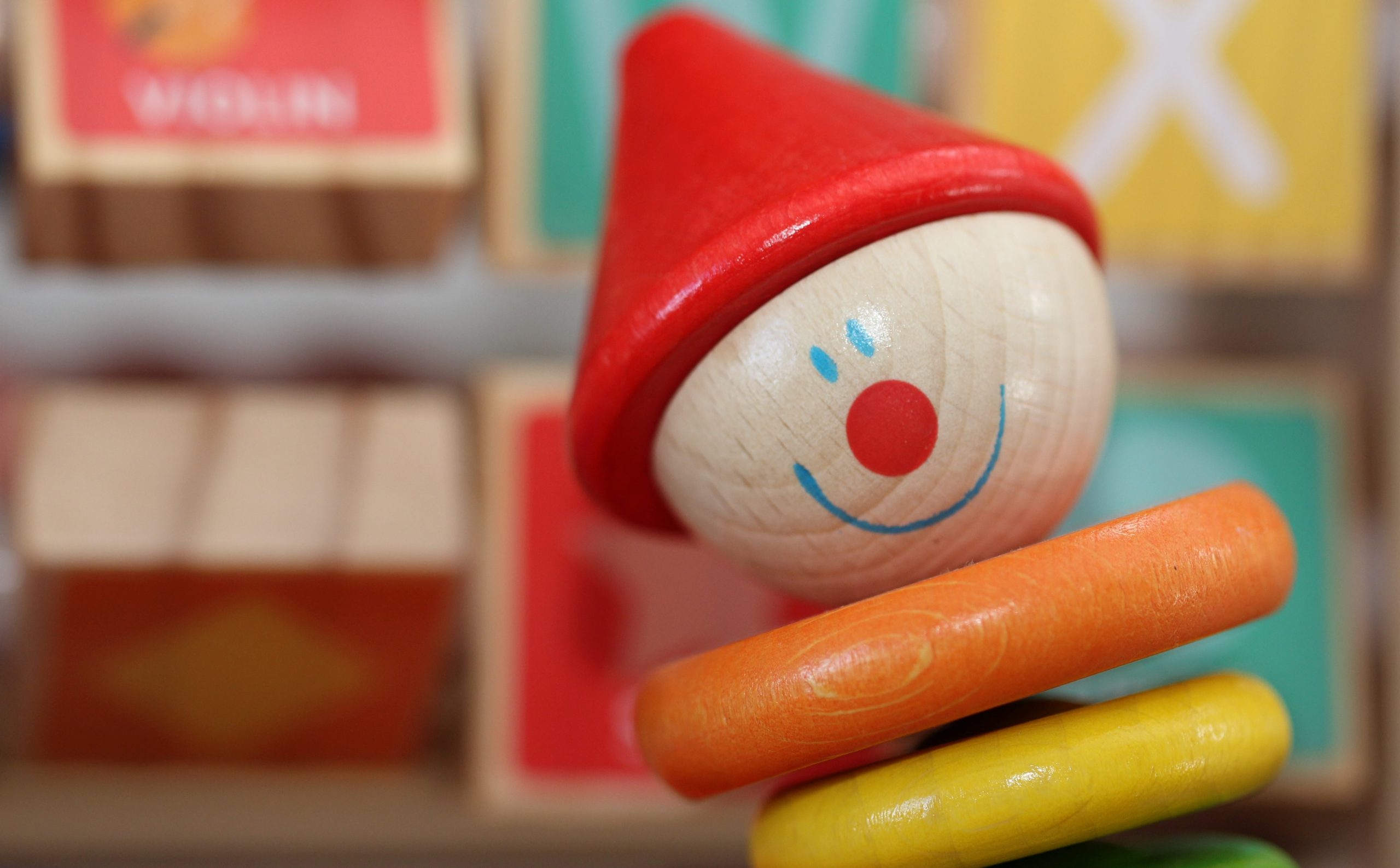If you have ever interacted with children of varying ages you would have quickly noticed that they have very different capabilities. This is because children are continually growing and developing in every area and at every stage of their life. It is valuable to understand each stage of development in order to help children learn and grow. But as Christians we also want them to ultimately come to a saving knowledge of our Lord Jesus Christ. Over the next few blog posts we are going to be looking at the characteristics of the different age groups, what their needs are and what they are capable of understanding about God. Having this knowledge will help us, as parents and teachers, to teach our children about God more effectively in an age appropriate way. In this week’s blog we will be specifically looking at ages two and three.
As a side note: We need to keep in mind that these different stages of development are not rules rather they are guidelines. Each child will develop at their own pace, some faster than others. Furthermore, as we look at these general principles it does not mean that every child is the same, they are still individuals with their own personalities, abilities, likes and dislikes. So you need to take the time to get to know each child as an individual in your class.
Their characteristics
- Physical development
Children at this age have already begun to develop their gross motor skills fairly well. They are able to walk, climb and jump. They, however, haven’t mastered how to do things like skipping or hopping yet. They can still be a bit unstable at times and may stumble and fall. They enjoy simple songs with movement and any activities that involve gross motor skills.
Although their gross motor skills are well on their way, their fine motor skills are not as well established. They are still figuring out how to hold a pencil correctly and use a pair of scissors. They do, however, still enjoy colouring in pictures, stringing big beads, putting together simple puzzles and playing with play dough.
While two and three year olds are very active and can’t sit still for very long, they have little endurance and can tire easily. Most children at this age are starting to do potty training.
- Mental or cognitive development
Children, in general, have a very short attention span, usually 1 minute per number of years. So a 2-3 year old is only able to concentrate for about 2-3 minutes. Children at this age are literal and concrete thinkers. They are active learners and spend their days exploring their worlds, making new discoveries and learning about the world they live in. They are very curious and love asking “what’s that?”. They learn best through play and exploration while using all of their senses. They can, however, only focus on one thing at a time.
Over the 2-3 years of their lives they have learnt many words and have started to string together simple sentences. They still, however, have a limited vocabulary. They may be able to write part of their name, identify colours and can repeat short rhymes and songs. They love repetition and enjoy retelling stories or activities.
- Emotional development
Children who are two years old are egocentric i.e. they are the centre of their own worlds. Thus they often crave attention and seek to please. They love to talk about themselves and will interrupt you to tell you something about themselves. Although, by the time they turn three they begin to show more sympathy for others and can wait for short periods of time. Unfortunately, children this age are also fearful and insecure.
- Social development
Two year olds play mostly by themselves or play alongside, but not with other children. By the time they turn three they begin to play with other children more. Although sharing and taking turns is still not habitual. They may throw tantrums and become aggressive when they don’t get what they want. They have very little concept about other’s rights or feelings. “Mine” is a favourite word.
A two year old is often eager to do things without help and uses “no” frequently as a way to define his or her separate identity. They like to do things themselves even though they may not be able to.
- Spiritual development
Two and three year olds have a sense of awe and wonder about who God is. They are also very trusting.
What do they need?
Children of this age need to alternate between active and passive activities. This is because they are very active and yet they tire easily. So you will need to have a combination of active and rest times. They also have a short concentration span so you will need to come up with ways to capture their attention, like giving them a little break or changing the activity, to keep them focused.
When choosing activities for the children to do choose activities that involve their senses. This will help them to understand and remember your lesson better, as they learn best using their senses.
As we saw earlier, two year olds are egocentric so do your best to have a small teacher-to-learner ratio. This way you will be able to give them more of the individual attention that they seek. This will help to make them feel loved and special. You also want to get on their eye level. Talk about what you see them doing to help them know you notice them and love them. They are still young and need a lot of help with their tasks. By having a small class you are able to help them in their tasks instead of expecting them to do them alone.
Young children love routine and repetition. Routine makes children feel secure. They know exactly what to expect. This has a calming effect. Ensure that you are singing songs that are repetitive and even sing familiar songs regularly. You should also repeat the main message of the story often during your time with them. This will help them remember what you have taught them.
Whenever teaching this age group you should avoid using abstract concepts or symbolism. They will not understand them and it will only cause confusion. While giving instructions, ensure that you have their full attention beforehand. Then give only one instruction at a time.
Talk and sing about God often. We, as adults, need to model God’s love and care to the children in our class. They will understand more about God’s love and nature through our loving actions rather than our spoken words.
What can we teach them?
People often think that there isn’t much that young children can learn from the Bible. This is a big mistake. There is so much that we can be teaching these young ones. Here is a list of what they can learn and understand:
- The Bible is a book about God and Jesus.
- The Bible is God’s special book.
- The Bible stories are true.
- The Bible tells us the right way to live.
- Church is a happy place.
- God made the world and everything in it.
- God made me.
- God loves and cares about me.
- I can talk to God.
- God is good.
- Jesus loves me.
- Jesus is my friend.
- Jesus is God’s son.
- Jesus was born as a baby and grew up.
The next time you are teaching your class, you need to choose material that will help them to learn these truths.
Although this age group has its challenges it can also be very rewarding. They may have a limited understanding, but it is incredible to see how God can open their eyes to understand His Word. Furthermore, it is very important to teach these truths so that they have a great foundation to build upon in later years.
It is valuable for us to understand each stage of development in order to help children learn and grow. But we also want them to come to a saving knowledge of our Lord Jesus Christ. In this week’s blog we had a look at the characteristics of two and three year olds, what their needs are and what they are capable of understanding about God. Having this knowledge will help us, as parents and teachers, to teach our children about God more effectively in an age appropriate way. Over the next few blog posts we are going to be looking at the characteristics of some of the other age groups.
Thanks for reading my post. I hope you found it helpful. Please send me any feedback, comments or questions that you may have. I would also like to hear if there are any topics that you would like me to deal with in the future. Any suggestions will be greatly appreciated.
Bye for now.
References:
- Carmichael, S, 2000, Their God is so Big, Matthias Media, Australia
- Chaun, Robert and Lawson, Michael, 1998, The Christian Educator’s Handbook on Children’s ministry, Baker Books, Grand Rapids
- 2006, Gospel Light, Teacher Training Smart Pages




